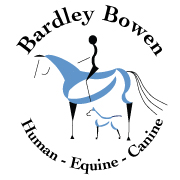Frequently Asked Questions
Do you take vets referrals?
Of course I do. However if you want me to look at your dog without a specific vet referral then I still have to confirm with them that they are happy for me to continue. This is really important – most vets are fine with this and ask for a report to be attached to your dog’s details. This is of course, fine with me.
Do I have to do anything special with my dog to prepare for the treatment?
Bowen needs to work on your animal without any outside influences. Ideally, you should try and organise your dog’s treatment so that it is not innoculated, wormed, or about to go for a long walk on the treatment date.
Only Bowen?
As with all Bowen work, it is ideal that there is no other type of bodywork for your dog whilst on a course of Bowen. Your dog will need to concentrate on the work done during a treatment and other body work such as physiotherapy and osteopathy can provide mixed messages and dilute the effect of the Bowen treatment. As an owner, you will also not know which one of the treatments is having the best effect!
Do you travel to do horses?
Yes. There is a small mileage charge and to make things more cost effective I try and group visits by area. However, I am flexible so the best thing to do is to contact me to discuss.
What do I need to do with my dog after the treatment?
Ideally dogs need to be rested post treatment. Most of them will take themselves off and rest anyway – but for the 24 hours immediately post treatment, they should not be competed (agility) or taken on extensive walks. The small adjustments made to the animal will need to settle and ‘become normal’ for the whole system – vigorous exercise can not only negate the effect but can, in a few cases, make it worse.
How is my dog going to react?
An interesting question. As with humans, every dog will react differently. We are not able to discuss a treatment with the animal and rationalise what is going on with them so I can only guess how they are feeling by their immediate reaction – for example their coat might start to ‘stare’; they might start biting themselves; they might start panting or wiggling around and showing signs of stress. This is something to be very aware of and if this happens, the animal is given much more time to process the treatment.
Most dogs settle into the treatment and will start to show signs of great relaxation – for example, their eyes will soften or their head will lower. They might throw some amazing jaw crossing yawns and they might start fidgeting. These are all signs of release and are all good.
